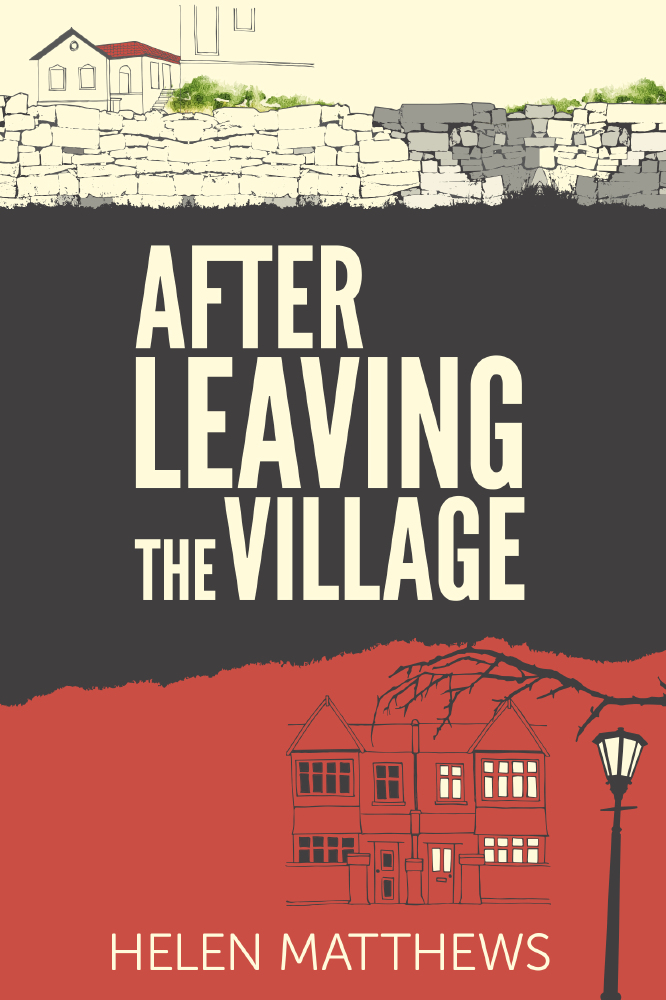By Helen Matthews, author of After Leaving the Village (Hashtag Press, £7.99, October 12th 2017). After Leaving the Village is a gripping new suspense, crime thriller that uncovers themes of modern slavery, family breakdowns and digital detoxes. www.helenmatthewswriter.com

Helen Matthews
In our technology-driven world, is it possible for a family to take a break from social media, online gaming and the internet?
That’s the dilemma facing Kate, a character in my contemporary suspense thriller ‘After Leaving the Village’. Her ten-year-old son, Ben is addicted to technology and gaming, using it as a crutch so he doesn’t have to bother making friends in the real world. So, Kate takes drastic action and disconnects her family from the internet - with dramatic results.
Ask any gathering (or online community) if the internet is good or harmful for our children and you’ll get more opinions than there are people in the room. Here are ten things - the good the bad and the ugly – that reflect aspects of current debate.
THE GOOD
Change is constant. To function in the society of the future, our children must be adept with technology. Those who can’t get to grips with it risk social exclusion.
Technology careers are cool and well-paid. There’s a role for everyone: from the nerd, who loves machine interaction, through the maths whizz, to creative jobs in graphics and design. Those who love self-promotion and acting have a new platform through vlogs. Even writers can carve out a niche – reviewing or writing storyboards for games. What’s not to like?
Gaming may help social integration. Gaming doesn’t have to mean kids sitting isolated in a lonely bedroom. Friends play together in a safe online environment, or in each other’s houses. If parents ban their child from using consoles, they risk setting that child apart. No one will want to come round and play.
THE BAD
Don’t use tablets as a pacifier for tiny children. Infants need human interaction, especially while their brains are developing. Using a tablet or smartphone as a virtual childminder makes it harder for young children to learn self-control.
When my own children were small, back in the 1990s, not only was this not an option – it was beyond our imagination! They had a toy called ‘My Little Computer’ - basically it was no more than a manic word generator of random sentences like ‘the hat sings to the dog’. Hard to believe it now but we all found that hilarious!
Information overload can lead to stress. The sheer volume of unfiltered information coming at us from social media and the internet all needs to be processed. Even as adults we find this hard-going. In children, it could trigger stress and anxiety.
In the past, life was simpler and childhood seemed more free and easy. There’s a clever cartoon doing the rounds (on social media, of course). It shows a 1970s mum dragging her reluctant son indoors from playing football with his mates. Juxtaposed is a pic of a present-day mum, standing on her doorstep and physically pushing her pale-faced child outside to play.
Boredom has benefits. If our children live in a world of virtual reality, with screens always on hand to entertain them, how will they find space inside their heads for imagination and creativity to flourish?
THE UGLY
Screens can mask social anxiety. If a child is already shy and awkward in social situations, hiding behind a screen may make things worse. Practicing eye contact and meeting people face-to-face are all essential to break the cycle of awkwardness. Staying home alone might make a child passive or apathetic, leading to more rejection.
Addiction takes many forms. When a child’s brain is over-stimulated by too much screen time it can affect their mood and may lead to tantrums or acting younger than their age. This, too, could drive friends away.
Cyber-bullying is a major concern. This topic is too vast and too important to cover here but online bullying remains a source of great anxiety for all parents.
HOPE
Parents aren’t powerless. It’s vital to keep channels of communication open, to be aware of what children are doing on the internet and, above all, talk. Setting parental controls on systems, playing online games together and limiting screen time is common sense. And perhaps in extreme cases, it may be worth considering a short-term ban on gaming and the internet for a few weeks, before reintroducing it gradually. Like everything else in life - balance and moderation are key.
© Helen Matthews 2017


